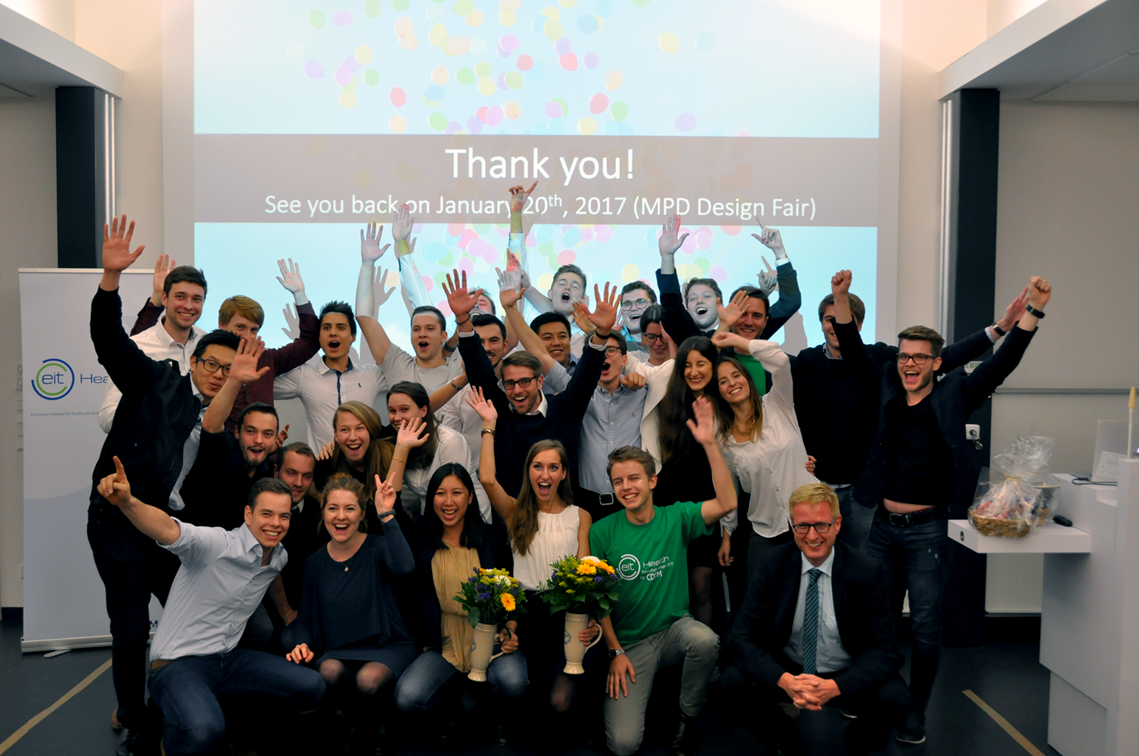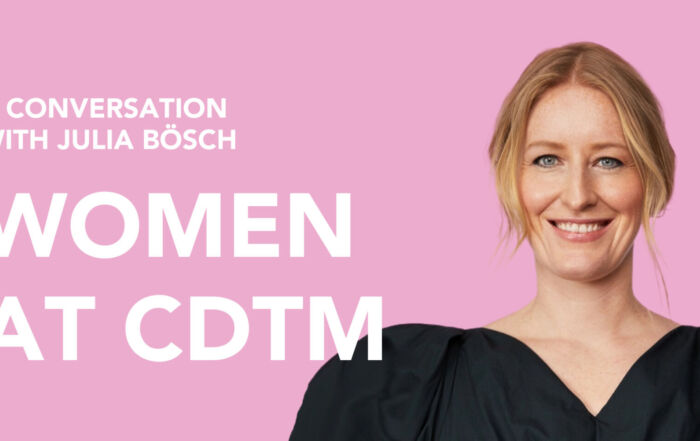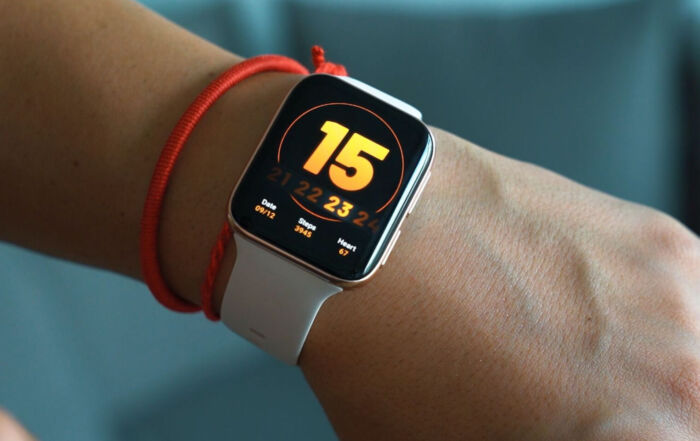On October 7, the final presentation day of the EIT Health Trend Seminar 2016 took place at CDTM, a joint institution of the Technical University Munich and Ludwig-Maximilian University in Munich. In front of many guests including representatives of the universities (LMU and TU Munich), this year’s project partners (Profil GmbH, Air Liquide Healthcare, AG Diabetes & Technologie), lecturers and cooperation partners (EIT Health) 26 international and interdisciplinary students presented their results and 5 future business models in the field of “Digital Innovation in Diabetes Care – Opportunities and Risks for Patients, Healthcare and Economies”
From August 22 to October 7, the 26 students conducted a holistic trend research and developed future-proof business models addressing the health technology topic agreed upon with this year’s industry partners. The course was conducted in close cooperation with EIT Health, Profil GmbH, Air Liquide Sante International and AG Diabetes & Technologie and fostered the development of innovative health business models through state-of-the-art methodology.
The Trend Seminar was divided into the three phases Basic Phase, Scenario Phase and Ideation Phase whereas the students worked in 5 different interdisciplinary teams with 4 to 7 team members in each of the three phases.
First, the basic phase consisted of guided literature research in the fields of society, technology, economy, environment as well as political and legal trends related to the associated health technology topic with a time span of +5 years. Keynote speeches from the project partner and external experts were also a part of the phase and included speakers from EIT Health (Dr. Bodo Brückner), KU Leuven (Prof. Chantal Mathieu, Prof. Pieter Gillard), Aqua Institut (Contanze Stegbauer), IESE Business School (Dr. Magda Rosenmöller), IICM (Felix von Held, Felix Werle), DZD (Prof. Rolf Holle), Eurice GmbH (Dr. Claudia Schacht) and Profil GmbH (Prof. Lutz Heinemann, Dr. Carsten Benesch, Prof. Freimut Schliess). The students were given input about diabetes and the economic aspects of diabetes, business models in the health industry, quality assurance in healthcare and were introduced in technologies related to diabetes.
Second, in the scenario phase the students elaborated future scenarios with a time span of 20+ years following a systematic scenario planning approach also related to societal, technological, economical, environmental and political and legal trends. The existing teams of phase one were newly formed and worked intensively on the given projects.
Third, in the ideation phase the student groups developed a large number of health technology related business ideas. For the final presentation the 5 most promising ideas were chosen and finalized based on the business model canvas.
The 5 teams and their business models:
Wholy is a holistic solution which helps to find the appropriate groceries for a user’s diet. After entering the dietary restrictions and preferences, Wholy filters out every item which does not comply with the criteria. It relieves users of the overwhelming information overload they encounter by the infinite amounts of grocery choices, which are offered by traditional supermarkets. Additionally Wholy suggests grocery items to compensate for nutritional imbalances in a user’s shopping cart.
Preventino is a sixteen week online prevention program, which aims to reduce diabetes risk factors such as obesity and a lack of exercise. The B2B product focuses on apprentices who get registered for Preventino by their employers in order to prevent long-term costs for their company. The apprentices go through an app-based program, which gives personalized step-by-step instructions regarding nutrition, movement, the change of habits and sustainability.
Diabetes Buddy is an online platform, where diabetics can participate either as a mentee, in case of little experience with the disease, or as a mentor, in case of greater familiarity with diabetes. A cutting-edge matching algorithm then finds a perfectly fitting mentor-mentee pair using information about the diabetics. Afterwards, the platform supports the creation of a vivid and long-lasting relationship between each pair by suggesting various events especially suitable for fostering diabetes related discussions, but also taking the individual’s backgrounds into account.
Ultimate Loop created a holistic concept for diabetes patients that prevents follow-on diseases and enables self-management of the illness. The first product is an artificial pancreas called Ultimate Kit which ensures healthy blood-glucose levels. The second product is the Ultimate Platform which lets patients digitally manage all their disease related data and supports them in living a healthier lifestyle.
The SmartTooth is a device that constantly measures the carbohydrate intake in the food and is mounted on the rear back teeth. On the one hand, this information is directly sent to the artificial pancreas to predict the individual doses of insulin required to keep the blood sugar levels stable. On the other hand, a smartphone app visualizes the data on food intake, provides an overview on eating behaviour and offers individualized recipe suggestions to the patient. The SmartTooth therefore makes closed-loop-systems in diabetes care completely independent of manual interference.
Throughout the course the students had the chance to gain valuable insights in the healthcare industry and health innovation, acquire knowledge about diabetes and diabetes care and apply these given inputs to a real-life project creating business ideas for the current and future health topic “Digital Innovation in Diabetes Care – Opportunities and Risks for Patients, Healthcare and Economies.”







